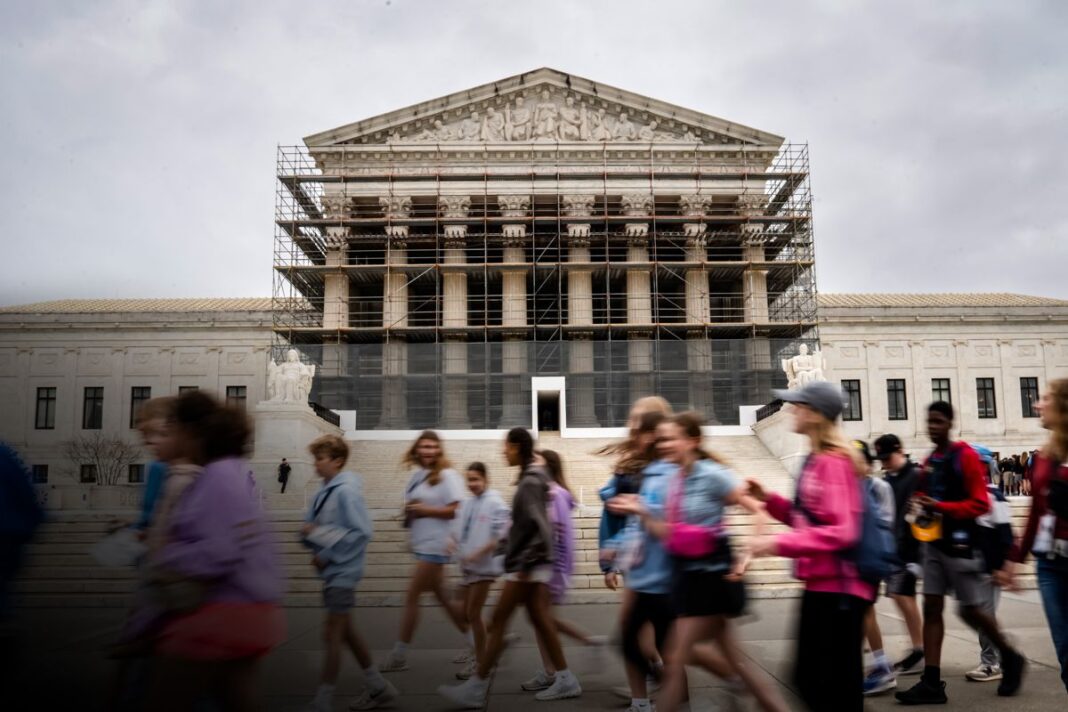A lower court judge prevented the president from deploying National Guard troops there.
The Trump administration asked the Supreme Court to halt a lower court’s block on its ability to send the National Guard to Illinois.
In a filing on Oct. 17, the Justice Department said that a district court judge in Illinois had “impermissibly substitut[ed] the court’s own judgment for the President’s on military matters.”
U.S. District Judge April Perry issued an order on Oct. 9 that prevented the administration from federalizing and deploying National Guard troops within the state. Perry said that the administration was likely violating the 10th Amendment and that deploying the National Guard would likely lead to civil unrest.
The administration’s appeal came after the U.S. Court of Appeals for the Seventh Circuit declined to block Perry’s order on Oct. 16. Justice Amy Coney Barrett requested a response to Trump’s filing by 5 p.m. on Oct. 20.
The law at issue is Section 12406, which allows the president to federalize National Guard troops under certain conditions, such as an inability to enforce the law. According to the Justice Department, federal officers in Chicago have been threatened and assaulted in recent weeks.
“President Trump determined that the situation in Chicago had become unsustainably dangerous for federal agents, who now risk their lives to carry out basic law enforcement functions,” U.S. Solicitor General D. John Sauer said in the application filed to the Supreme Court.
So far, the president is attempting to use 300 federalized National Guard troops from Illinois and 400 from Texas.
The administration’s filing is asking for an immediate stay on Perry’s order while the appeals court continues to consider the issue.
Earlier this month, Perry was skeptical of the way the federal government described the situation in Chicago and questioned the basis for sending in troops.
“Here, there has been no showing that the civil power has failed,” Perry said. “The agitators who have violated the law by attacking federal authorities have been arrested.”
While the Seventh Circuit allowed Trump to federalize members of the National Guard, it forbade their deployment.
Sauer argued that Perry indefensibly minimized the violence against federal officers and said the appeals court deprived federal officers of protections against violence.
He also argued that the district court was encroaching on Trump’s authority as president.
“A federal district court lacks not only the authority but also the competence to wrest control of the military chain of command from the Commander in Chief and to adjudicate whether the Governor of Illinois, rather than the President, should be in ultimate command of particular Guardsmen after the President has called them into federal service under Section 12406,” Sauer said.
By Sam Dorman








